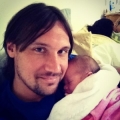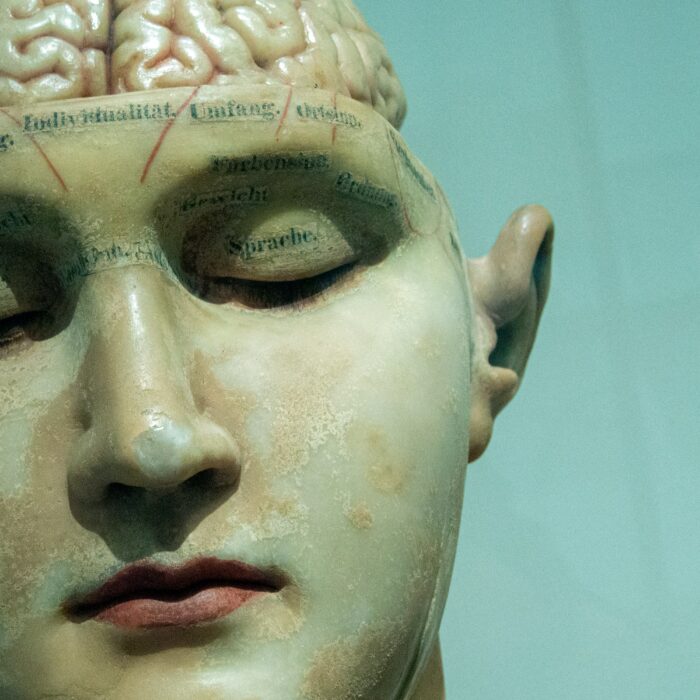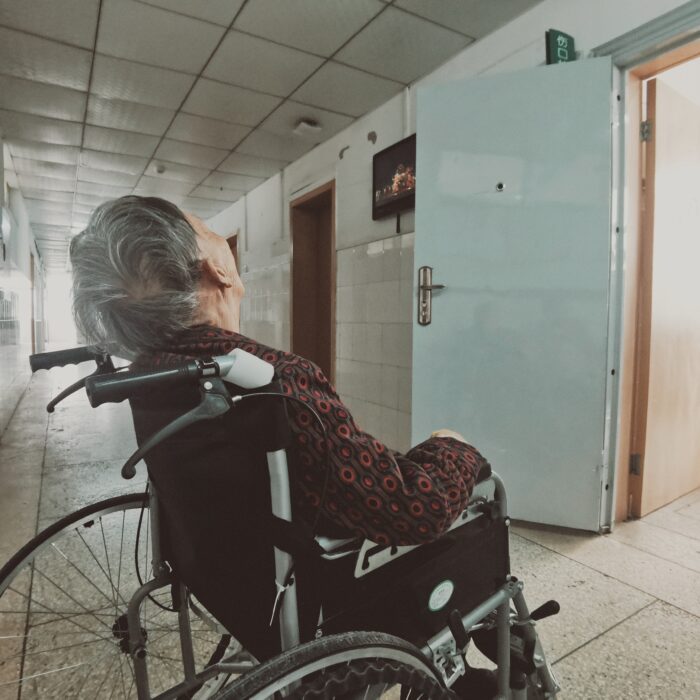You have no items in your cart. Want to get some nice things?
Go shopping Please don’t say anything, right now I just need you to listen, she said. She said that sentence to me once before, years ago now, for different reasons. For a long time now, she said, I’ve been having the same nightmare. Always the same one, just with these little differences each time. I’m with some other boyfriend, from a long time ago, and he and I are fighting. The sadness of the dream hurts. Its roots are so deep inside me, and the sadness hurts all the more because in the dream I’m wanting you, but, in the dream, you and I never existed for each other, and you don’t know me. Then I wake up. I see you asleep next to me, and I feel just so distant from you… She spoke softly—she never speaks softly—and she began to apologize (unnecessarily, I thought) for the silence and irritation with which we greet each other, after the strains of too much work, too little money, and very young kids have killed our patience. She said, I just want us to go back to who we really are, you know? Were we ever who I feel like we were? To top it all off, the antibiotics aren’t doing anything to this weird mastitis. Five failed rounds of antibiotics, can you believe that? I know the pain is making me meaner. I’m so sorry. I hate how the hardest thing now is just to be nice. Maybe we’ve put each other through too much bullshit. I hate it. And I swear, I’m sorry.
Please don’t say anything, right now I just need you to listen, she said. She said that sentence to me once before, years ago now, for different reasons. For a long time now, she said, I’ve been having the same nightmare. Always the same one, just with these little differences each time. I’m with some other boyfriend, from a long time ago, and he and I are fighting. The sadness of the dream hurts. Its roots are so deep inside me, and the sadness hurts all the more because in the dream I’m wanting you, but, in the dream, you and I never existed for each other, and you don’t know me. Then I wake up. I see you asleep next to me, and I feel just so distant from you… She spoke softly—she never speaks softly—and she began to apologize (unnecessarily, I thought) for the silence and irritation with which we greet each other, after the strains of too much work, too little money, and very young kids have killed our patience. She said, I just want us to go back to who we really are, you know? Were we ever who I feel like we were? To top it all off, the antibiotics aren’t doing anything to this weird mastitis. Five failed rounds of antibiotics, can you believe that? I know the pain is making me meaner. I’m so sorry. I hate how the hardest thing now is just to be nice. Maybe we’ve put each other through too much bullshit. I hate it. And I swear, I’m sorry.
My wife told me this story about her dreams one night after she’d had a few beers at the beach-themed sports bar where we’d taken the kids for dinner. (In hindsight, I feel detestably selfish—I feel that I’ve been too selfish for many reasons now—for not giving much thought to the pain in her breast; she was unusually prone, after all, to unusual infections, which always cleared up). I was startled, not by her story’s poignancy, but how oddly parallel it was to a dream I’d had only two or three or maybe four nights earlier. Well, I should say that it paralleled not the dream per se—I can’t recall the dream itself—but the experience of waking up from the dream, when I was still submersed in a frightening amnesia. We had both fallen asleep with the lamp still on, and, as I opened my eyes to the lamplit bedroom, I was already holding the woman beside me with an intense and desperate tenderness, though I didn’t recognize her as my wife. Panicking, I held this stranger, as though she were a truth I could neither decipher nor survive without knowing, until, after the passing of several seconds that felt eternal, realer than any quotidian lapse of time, familiarity seeped its hues of recognition back into the picture of my consciousness, and I felt myself breathing and lonely for my sleeping wife.
I don’t remember whether or not we said goodbye to each other the following morning as we each left the house for our jobs. I know, though, that we didn’t say much to each other when we left the house this morning. Can I confess how, though I instantly regret the sadness of our routine as she walks away without a word, I am too stubborn, too weak, to open my mouth, to speak above the noise of isolation and disappointment that I hear in her heavy footfalls?
During my drive, I saw six enormous vultures pecking at something on the railroad tracks beside Roosevelt Boulevard. I wanted to tell her how uneasy these newly eerie tracks have made me feel lately. Three weeks ago, at the railroad crossing, she and I saw a dead teenager burning in the tall flames that climbed the concrete utility pole after his car crashed into it; only four days later, near that same crossing, I saw a stalled train with an old man’s Cadillac violently twisted across the front of the engine; and this morning, not far from the charred utility pole, the hulking black vultures satiated their necrophagic appetites. (I saw the wet shining of their dark feathers, and suddenly, against my will, I knew the liquid of my tongue.) I doubt, though, she wants to talk about portentous signs, or the interruption of death.
I also want to tell her the news story I just now read, about the fast food customer down in Royal Palm Beach who, no one knows why, assaulted the cashier with an alligator thrown into the drive-thru window. But I don’t think she feels like laughing, either. Of course she feels like laughing, though; why wouldn’t she? After all, it was in laughter that our abundant differences melted away, years ago, in the hospital where we first met, and we saw each other with innocent eyes, exulting in every little oddity that we eagerly shared with each other. These empty minutes before the start of the work day, spent in the smallness of my parked car, outside my still locked suite in one of the identitcal buildings in this sprawling office park, the empty minutes absorbed by these stucco aisles of white and red rectangular repetition claiming the full capacity of my vision—they leave me feeling hollowed out, and anxious with thoughts of what I ought to be doing differently. Consequently, the lyrics to the song I hear on the radio have devastated me: open your eyes, love, the woman sings, ‘cause you’ve been sleeping.
******
Two weeks later, in the middle of March, my wife’s biopsy results confirmed that, yes, the stubborn inflammation in her left breast was cancer, and everything changed. The terrible exhilaration that follows bad news lightened my head and soured my stomach; much that was previously significant was suddenly weightless. She’s only thirty-five years old; her primary care physician was as surprised as we were. Invasive ductal carcinoma: the Latinate acoustics of the disease’s name were as ominous as the reds and purples bursting in sick, dimpled nebulas across the skin of her breast. The reason the mammogram didn’t detect a mass, the oncologist at Mayo explained, is because your cancer is what we call inflammatory; rather than cluster into lumps, the cancer cells accrue in sheets that have infiltrated the skin itself and that our imaging can’t differentiate from infection. That knowledge contributes a painfully sentimental hindsight to this already sentimental little story. If I therefore need to apologize for a maudlin aesthetic, then let me answer (appropriately) with a cliché. I’m only human. And, human, however reluctantly human (what a disingenuous joke), I simply need to write these words. I feel that the reasons for this need are sufficient. In the quickness with which her symptoms appeared and we received the news, in the rush with which she began her crowded treatment and testing schedule, I am struck by how actually speaking about this to each other feels so impossible, so nearly inappropriate, as if articulating fear and mortality were already a dismissal of hope.
Some of these initial memories, though, are best left out. The image here of a tearful and frightened woman, seated in a hospital room and listening to the details of a months-long and physically transformative treatment, does not provide the words with which I want to preserve my wife; the words profane her. (But I just said it anyway, and I keep using first person and possessive pronouns—this writing, this compulsive writing, is very selfish.) The threads that unspool from these memories, though, are too many for me to ignore. For example, how do you choose the best way to talk to your small kids about their mom’s cancer? It’s an ancient word, I imagine myself saying to five-year-old Charlie, sitting on his bunk bed with him, and all it means is crab, and isn’t it fun to look at crabs? The thought quickly becomes grotesque. What could little Charlie understand—Charlie, who just uttered another of his inexplicable sentences: Dad, probably when I grow up I’ll have big balls like Santa Clause. What’s the point in trying to get him to hear the awful resonance in words like chemotherapy, mastectomy, radiation?
Next, my thoughts drift to the afternoon when I first saw her—God, in rehab, in a very bright office on the fifth or sixth floor of St Vincent’s Hospital in Riverside; shouldn’t our having met there, of all places, already acted as a foretaste of the silencing injuries that accumulate, bump by little bump, from our sometimes cruel and always regretted chemical priorities? I remember her bent knee as she lifted her chair at the end of the sessions, after the serenity prayer, when all chairs were to be stacked against the back wall; I remember the melancholy in her blue eyes, and the curvature under her usually black clothes. Most vividly, I remember the cloudy evening after the last session when we walked together along the St Johns River behind the hospital, telling each other stories and laughing. She had braided her hair; she wore a little pink dress.
Then, I look at our two-year-old daughter, who loves her mommy’s long black hair, I think about genetics, and I wonder. As meaningless a comfort as this confused figuration is, our daughter was born under the sign of Gemini, a full ten days before the astrological return of the crab in late June. Of course, I won’t totally discount how our organisms and the heavens continue to speak through each other; the idea, the attractively bogus idea, is too nice. Nonetheless, I don’t consider it significant that my wife and I first met in the middle of July, seven years ago, and therefore under the sign of cancer, of the karkinos that Hercules crushed underfoot and that the goddess Hera subsequently installed as a crustacean outline of distant bulbs alighting Earth’s night sky. These thoughts, that arrive as if from the influence of narcotics in a dizzy head: I can’t help but feel that they’re already uselessly symptomatic of premature grief.
Beneath this constellation, which, coincidentally, is most visible in the northern hemisphere in the month of March, our sleep now pulls us into rabid cycles of briefer dreams. Asleep, I hear the Paraguayan oncologist’s accented pronouncement again: So, the PET scan shows that unfortunately the cancer has metastasized to the bones; I won’t sugar-coat this or give you false hope, because now this is a stage four cancer, and it is not curable. I wake up. The room is dark. I move closer to her, and enjoy the importance, even the optimism, of feeling her breath on my face.





